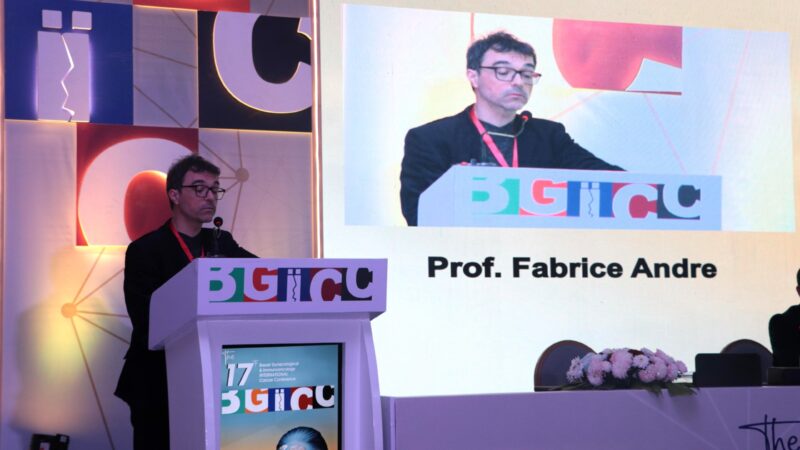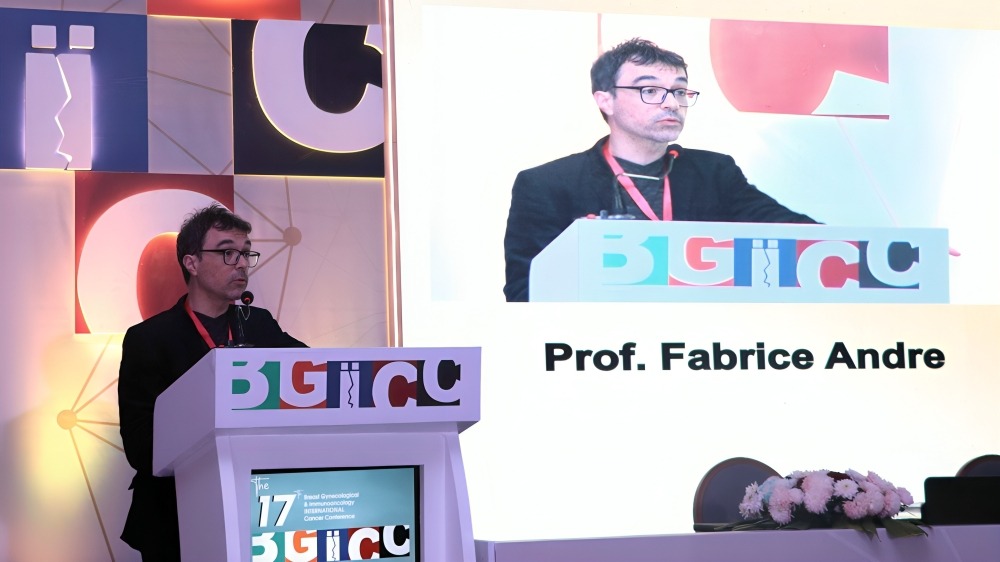Prof. Fabrice André, ESMO President, delivered a keynote lecture at BGICC 2025 on the potential of immunotherapy in luminal breast cancer, shedding light on the challenges, current findings, and future perspectives in this field.
Here are the key takeaways:
Current Evidence on Immunotherapy in Luminal Breast Cancer
1.Trial Results and Limitations:
• Initial trials exploring immunotherapy in luminal breast cancer showed modest efficacy, with only a small subset of patients benefiting.
• A Phase II trial demonstrated limited response rates, emphasizing the heterogeneity of immune-related mechanisms in luminal tumors.
2. Pathological Response Rates:
• Some trials reported a modest increase in pathological complete response rates (from 15% to 20%) when immunotherapy was added to standard therapies. However, the overall benefit remains constrained to select populations.
3. Biomarker Challenges:
• PD-L1 expression appears to correlate with better outcomes, but the prevalence of PD-L1 positivity in luminal breast cancer is relatively low compared to triple-negative breast cancer.
• Genomic instability and immune microenvironment characteristics may further stratify patients likely to respond to immunotherapy.
Emerging Insights
Combination Therapies:
• The integration of immunotherapy with chemotherapy or targeted therapies has shown promise in enhancing anti-tumor immune responses.
• Ongoing studies are evaluating combinations with PARP inhibitors and CDK4/6 inhibitors to synergize immune activation.
Neoadjuvant and Early-Stage Disease:
• Immunotherapy in early-stage luminal breast cancer may have a role in improving outcomes by inducing an immune memory effect.
• Trials testing neoadjuvant immunotherapy show potential but require further validation.
Mechanisms of Resistance:
• Tumors in luminal breast cancer often exhibit low immune infiltration and high immunosuppressive signals, contributing to resistance.
• Innovative approaches targeting the tumor microenvironment, such as reprogramming immune suppressor cells, are under investigation.
Future Directions
1. Personalized Immunotherapy:
• Identifying biomarkers beyond PD-L1, such as tumor mutational burden (TMB) and immune signatures, is crucial to personalize treatments.
2. Role of Immunogenicity:
• Strategies to enhance tumor immunogenicity, including vaccines and oncolytic viruses, are being explored to activate anti-tumor immunity.
3. Novel Trials:
• Large-scale trials are needed to validate the efficacy of immunotherapy in luminal breast cancer, particularly in combination with emerging therapeutic agents.
Conclusion
While immunotherapy in luminal breast cancer currently shows limited benefit, ongoing research into biomarkers, combination strategies, and innovative approaches could redefine its role. Prof. André emphasized the importance of collaboration between research and clinical practice to address the complexities of this disease and unlock the potential of immunotherapy for a broader patient population.

Further Reading:
How Egypt is closing the gap in breast cancer care: Dr. Hesham El-Ghazaly leads the conversation
Debate Highlights by Julie Gralow: Is There a Role for Immunotherapy in Early-Stage TNBC?
Scientific Insights from Prof. Hope Rugo: Advancements in Metastatic HER2+ Breast Cancer Therapy


